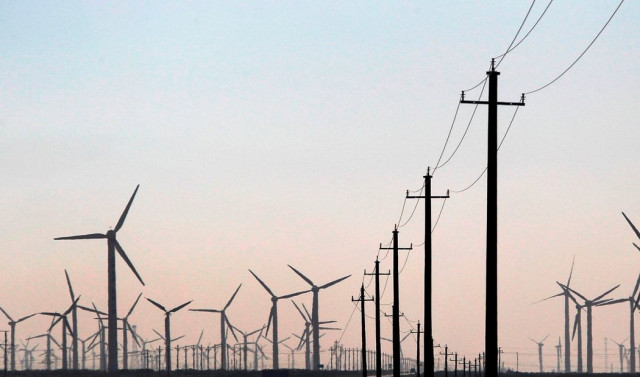AEDB makes plan to produce clean energy
Wind and solar power to reduce need for oil imports.

AEDB Chief Executive Officer Arif Alauddin, during a presentation on Friday, sounded optimistic while discussing a plan to generate 900 megawatts of clean energy during the next three years by using wind and sunlight.
Alauddin, who took charge of the organisation in June 2008, said till recently the AEDB role was to facilitate investors in investing in clean energy, adding the recently approved AEDB Act has empowered the agency to set up projects. He said he has secured up to $700 million credit line from lending agencies for initiating projects.
Alauddin said the cabinet is likely to approve Alternate Energy Policy by mid-January. The government has the potential of earning up to $400 million per year through promotion of alternative energy and by selling carbon credits in the international market. “Another environmental benefit is that the alternative energy checks degradation of land,” he added.
Alauddin said one of the main sources of alternative energy is biodiesel and for that Pakistan needs to cultivate land for getting the fuel. Crops that are used to produce bio-diesel, such as Jatropha, can also be planted in marginal and non-productive areas. With a total population of 170 million, Pakistan is fast undergoing urbanisation while population under the age of 15 comprises 39 per cent of the total, pointing to a spurt rather than gradual increase in energy demand. “In 2020, oil import bill will surge to $38 billion,” he added.
Alauddin said electricity is available to only 57 per cent of the population, while natural gas is available to slightly over 20 per cent. Alternative energy can be an option to provide electricity to the un-served population, as the Water and Power Development Authority has said it would not be in a position to provide electricity to 40,000 villages during the next 40 years, he said.
He said poor are paying three to five times more for fuel than those living in cities. Increase in prices of modern commercial fuel is creating hurdles and is forcing consumers to step down on the energy ladder towards biomass, he concluded.
Published in The Express Tribune, January 1st, 2011.



















COMMENTS
Comments are moderated and generally will be posted if they are on-topic and not abusive.
For more information, please see our Comments FAQ